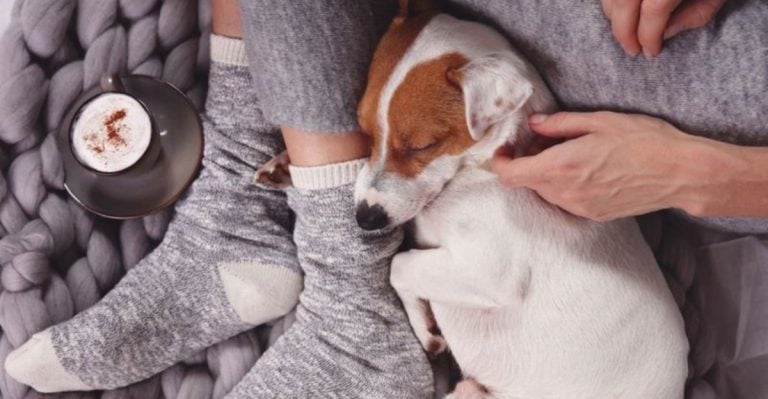How To Help Your Senior Dog Welcome A Newcomer With Open Paws

Every seasoned dog owner knows it: change stirs up all kinds of feelings, even in the chillest dogs. That tiny ball of fur bouncing into your home is more than just noise. It’s a shift. And for your old dog, bonding might need a little thoughtful backup.
Set Expectations Early

Every relationship needs time to bloom. In the first few days, when your senior meets the puppy, don’t expect instant snuggles. Some older dogs feel protective; others get overwhelmed. Also, setting clear expectations early on spares your senior unnecessary pressure and heartache.
Prepare A Safe Space

Imagine someone crashing into your bedroom uninvited. That’s how it feels without a retreat zone. Older dogs need safe spaces where the puppy can’t intrude. Whether it’s a crate or a quiet corner, protecting that space helps them recharge emotionally and prevents resentment from building.
Keep First Meetings Short

Do you ever meet someone who’s just too much right away? Dogs feel that, too. Their first meetings should be brief, in five to ten minutes. Long exposures overwhelm seniors, especially those managing arthritis or sensory decline. On the contrary, short interactions build confidence.
Use Neutral Meeting Grounds

Where you introduce them matters more than you think. A neutral space lowers territorial instincts. Veterinary experience suggests fewer conflicts happen when dogs meet away from their home turf. At home, the walls smell like “mine.” Outside, it’s just two dogs figuring it out.
Watch Body Language Closely

You don’t need a degree to notice stiff legs or yawns. Those signs scream, “I’m not ready yet.” Seniors communicate through body language before anything else. Learning to read these early signals lets you step in before tension explodes and keeps early memories stress-free for both dogs.
Stick To Familiar Routines

Your senior dog’s routine is their anchor. When a puppy arrives, it’s easy to toss schedules out the window. But routines offer safety. Research in veterinary behavior consistently shows that routines significantly reduce anxiety during major changes, helping older dogs adjust with less stress.
Give Your Senior Priority

Think about it: they were here first. Ignoring your senior while fussing over the puppy sparks jealousy and withdrawal. Always greet your seniors first and honor their habits. It reassures them they haven’t been replaced, which makes them much more open to accepting the newcomer.
Supervise Every Interaction

Puppies are relentless. They nip, bark, and climb. However, older dogs don’t always correct bad manners gently. Your job is to act like a referee. Don’t hesitate to step in early if play turns rough, and advocate for your senior’s comfort.
Encourage Gentle Play Sessions

Sometimes, the best connections grow through soft, slow play. A favorite plush toy or a tug rope can bridge the gap. Always choose low-impact games that don’t stress old joints. When play is encouraged but paced, both the puppy and senior dog learn to trust at a safe speed.
Offer Comforting And Familiar Scents

Familiar scents offer comfort when bringing a new dog home. Let your senior dog sniff the newcomer’s blanket or toys before a face-to-face meeting. This early scent introduction can ease tension and help the first meeting feel more natural.
Reward Calm Behavior

Ever notice how dogs mirror the energy we praise? Instead of rewarding wild play, catch them being calm near each other. Drop treats on the floor casually when your senior shows patience or your puppy shows manners. Over time, these small reinforcements naturally build a peaceful rhythm between them.
Never Force Interactions

Trying to “make” two dogs be friends is a fast track to resentment. Trapping them in small spaces or shoving toys between them usually backfires. Seniors may withdraw or snap simply from feeling cornered. Real bonds form when dogs have choices, and those choices must be respected.
Give Each Dog Alone Time

Togetherness is sweet, but distance is golden, too. Puppies are high-octane; seniors sometimes just want a nap. Structured solo time helps both recharge without overwhelming each other. Giving daily “quiet hours” significantly reduces tension and makes each new reunion more relaxed and happy.
Share Positive Experiences

Nothing bonds dogs faster than good vibes. Walks in the park, peaceful car rides, and tandem treat sessions create memories steeped in trust. The magic of pairing new smells and sounds with happy emotions is undeniable. Positive experiences wire the brain to associate each other with safety.
Consult A Trainer If Needed

If tension lingers or someone’s truly miserable, don’t wait. A qualified behaviorist can spot patterns that slip past even a keen eye. Early intervention made the difference between a fractured household and a bonded one. Sometimes, a little outside help is the kindest gift you can offer.





